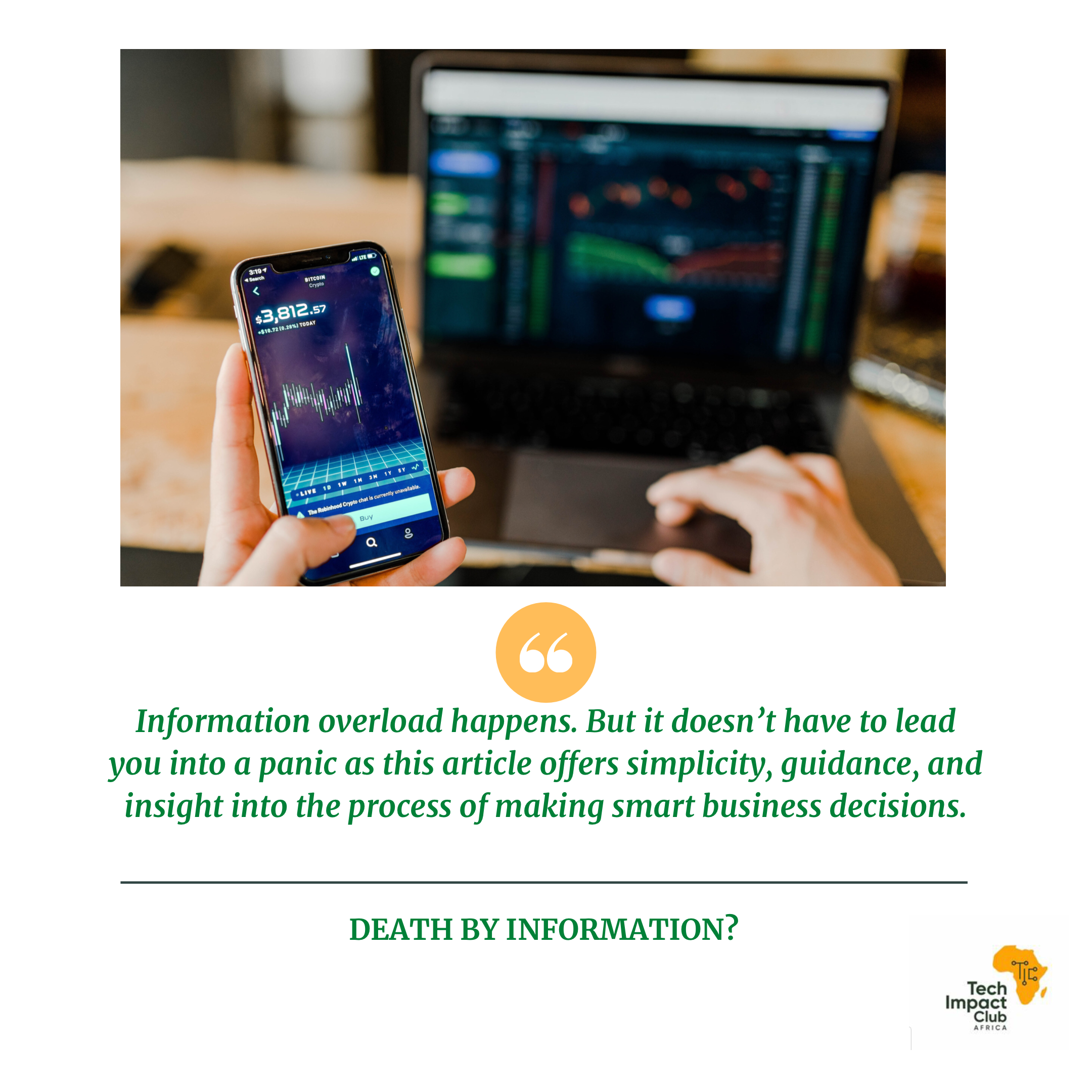The search engine might be the best thing to happen to humans since the internet became a ‘thing’. In less than a second, over 11 million search results could be produced upon request just by entering the keyword(s) into the search panel and clicking ‘search’. Amazing? Maybe.
When you have so much information and options available to you, it can be difficult to distinguish which ones are truly the best choice. This is an overwhelming and stressful process that most of us face when we have too many choices competing for our attention and time.
This phenomenon has a term and it is known as ‘Information Overload’. Information overload is when too much information hinders your ability to make the right move. Information overload happens when your data doesn’t help you make better decisions and it just takes time away from you. This problem often occurs when people have unlimited options to choose from. It’s the feeling you get when you’re trying to process a huge amount of information about something and figure out what’s best to do next.
Information overload happens. But it doesn’t have to lead you into a panic as this article offers simplicity, guidance, and insight into the process of making smart business decisions.
What To Do?
- Take A Break: Your brain is a powerful tool. Do it a favor by taking care of it and making sure you don’t overuse it. Turn off your computer and avoid reading for a few hours each day, especially the news. Avoid technology for a few hours every day and do nothing. This is good for you, your productivity will improve, and it will make you more productive in general.
- Take Charge of What You Ingest: Focus on the information that matters to you most.Be selective. Not all the information you receive is of equal value.Select and read what you want, when you want. This isn’t your parents’ newspaper. So when you get an email, most likely you can tell from the subject line whether it needs a quick response or if you can put it aside for a while.
- Manage Workplace Communication and Information Sharing: It’s important to keep your office in order. You have to carefully manage the information that comes across your desk. However, you have no control over the collective flow of data. Don’t let extraneous information get in your way. Keep your work life running smoothly by keeping emails and meetings focused. It’s not rocket science. Approach your work with the aim of reducing superfluous information and wasted time. Before starting on any task ask yourself “What am I trying to achieve here?”, “Is there a better way to achieve it?”, and “Do I really need to complete this task right now?”
- Declutter Your Mind: Instead of letting distracting thoughts interrupt your work flow, write them down and forget about them until you have time to deal with them.A “brain-dump” is an excellent way to rid your mind of distractions and keep them from weighing down your thinking. Think of your “brain dump” as a kind of time-out. Take the time to write down everything that’s on your mind – the big stuff, the small stuff, and everything in between. Then take a deep breath, relax, and get back to work refreshed.
- Take Advantage of Digital Well-being technology: Ironic that tech has an answer to a problem fostered by tech? Not totally. It’s a case of taking responsibility and stepping up to fix it. Technology itself is not inherently problematic. However, it can pose risks to our physical and mental wellbeing when we are unable to disconnect from distracting apps and notifications. Digital wellbeing technologies aim to help individuals set healthy boundaries and habits for their digital life. The potential dangers of all this screen time may not be immediately obvious, but it’s important to acknowledge the risks of excessive screen use and to develop a strategy to ensure appropriate mobile usage.
Certain features like the blue light filter, tracking app usages and setting curfews, going on a digital fast or detox (staying away from the internet for a set period) and turning off notifications have also proved to be helpful.
There would always be news and pieces of information competing for our attention as the days go by, the trick is to always stay one step ahead. Be deliberate about filtering out the noise and focusing on what matters per time.



